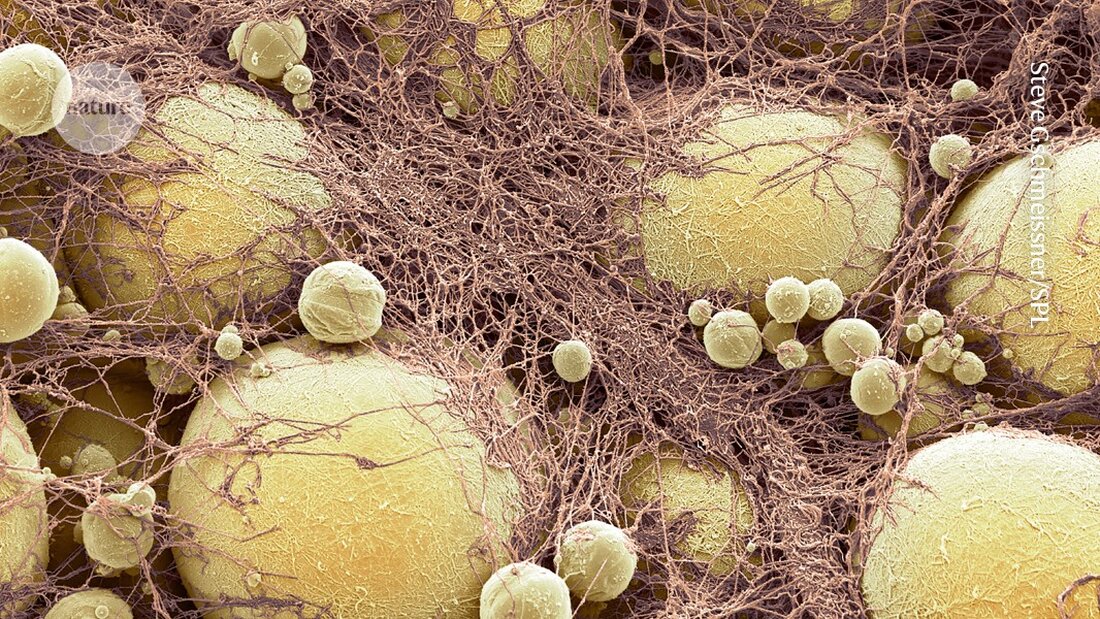Fat cells have a memory for obesity - why it's hard to maintain weight
Fat cells store memories of obesity, which explains why weight is difficult to maintain after trying to lose weight. New research shows that these cellular changes persist even after significant weight loss.

Fat cells have a memory for obesity - why it's hard to maintain weight
Even after drastic weight loss, the 'memory' of fat metabolism remains, research shows 1. This discovery may explain why it can be difficult to maintain a healthy weight after a weight loss program.
This memory arises because the experiences of being overweight lead to changes in the Epigenome — a set of chemical tags that can be added to or removed from the DNA and proteins of cells - lead. These marks influence the activity of genes. In fat cells, this change in gene activity appears to render them unable to carry out their normal function. These impairments, as well as changes in gene activity, can persist long after weight has been reduced to healthy levels, reports a study published today in Nature.
The results suggest that people trying to lose weight often need long-term care to avoid gaining the weight back, says study co-author Laura Hinte, a biologist at ETH Zurich in Switzerland. “That means more help may be needed,” she says. "It's not your fault."
Although we've long known that the body tends to return to excess weight after weight loss, "how and why this happens has been almost like a black box," says Hyun Cheol Roh, an epigenome specialist at Indiana University School of Medicine in Indianapolis who studies metabolism. The new results “show what’s happening at the molecular level, and that’s really fascinating.”
A lasting memory
To understand why weight can regain so quickly after loss, Hinte and her colleagues analyzed fatty tissue from a group of people who were severely overweight and from a control group of people who were never overweight. They found that some genes were more active in the fat cells of the obese people than in the fat cells of the control group, while other genes were less active.
Even weight loss surgeries did not change this pattern. Two years after the weight-loss procedures, the overweight participants had lost a lot of weight, but the genetic activity of their fat cells continued to show the pattern associated with obesity. The scientists found similar results in mice that lost large amounts of weight.
In the fat cells of humans and mice, the genes activated during the experience of obesity are involved in promoting Inflammation and fibrosis involved — the formation of stiff, scar-like tissue. The downregulated genes help fat cells function normally. Research on mice tracked these changes in gene activity for modifications in the Epigenome, which has a strong influence on how active a gene is, including whether it activates at all.
The scientists tested the persistence of these changes by feeding obese mice. Several months after the mice became lean again, the changes in their epigenome persisted, as if the cells remembered their overweight state.
Quick retaking
It is unclear how long the body remembers being overweight, says study co-author Ferdinand von Meyenn, an epigenome specialist at ETH Zurich. “There could be a window of time in which this memory is lost,” he says. “But we don’t know.”
To better understand the effects of this memory, the researchers examined fat cells from mice that had become slim again after a period of obesity. These cells absorbed more sugar and fat than fat cells from control mice that were never overweight. The once overweight mice also gained weight more quickly when exposed to a high-fat diet.
However, scientists not involved in the study note that the work does not prove that the epigenetic changes caused the physical changes in the mice. The list of epigenetic changes in fat cells is valuable, says biologist Evan Rosen of Beth Israel Deaconess Medical Center in Boston, Massachusetts, who studies fat tissue, but it will be difficult to determine which of these changes drive the fat cells' lasting memory.
“There is still no causal connection,” agrees von Meyenn. "It's a correlation. ... That's what we're working on."
Preventing obesity from the start is crucial, adds von Meyenn. People who lose weight "can stay slim, but it takes a lot of effort and energy," he says, adding that his team's findings could help provide some of the benefits the stigma surrounding obesity to dismantle.
-
Hinte, L.C. et al. Nature https://doi.org/10.1038/s41586-024-08165-7 (2024).

 Suche
Suche
 Mein Konto
Mein Konto
